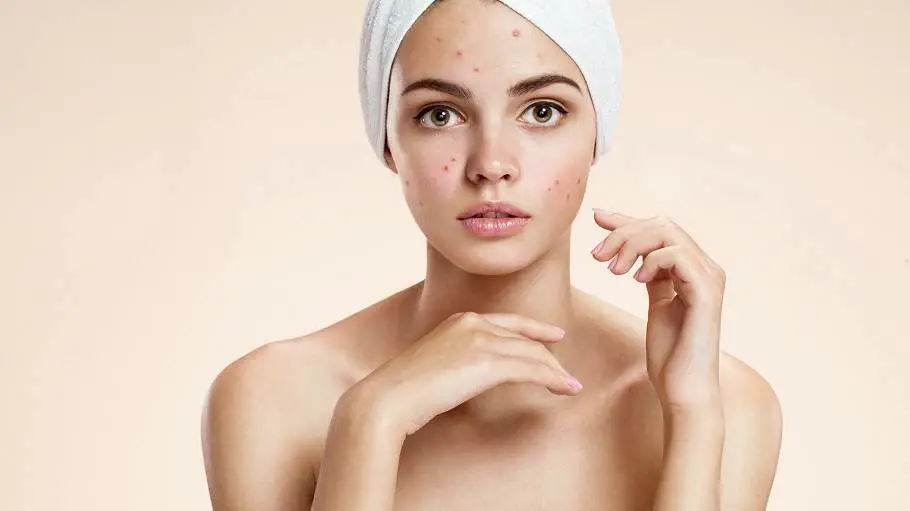Acne is inflammatory skin condition which is not dangerous, but it can leave scars. Pimples, blackheads, whiteheads, nodules, and cysts are all considered acne.
These skin changes happen when follicles get clogged with oil and dead skin. Most commonly they get manifested on person’s face, but they can appear in other parts of the body such as neck, chest, or back. Oily substance that accumulates in pores is called sebum.

There are two types of acne—inflammatory and noninflammatory. The latter ones are caused by dead skin and oil. If they get infected with bacteria, they are then called inflammatory acne.
What Causes Acne?
Acne (Acne Vulgaris) can be caused by hormonal disbalance, oily skin, clogged follicles, or bacteria. The most common age when acne manifest is adolescence, due to hormonal changes.
Despite the common belief, blackheads are not dirt stuck in pores, but oil and dead skin which, when exposed to air, turn black. When the follicle becomes inflamed, it is called a pimple; and a pimple located underneath the skin – it’s a cyst.
Other factors that can induce acne are certain medications (contraceptives, lithium, and corticosteroids), unhealthy diet (carbs and sweets), family history, or stress.
People who work with industrial materials can also have problems with acne, as well as motorcyclists because of the helmet irritation.
Acne problems can last for years, while some people have to deal with them their entire life. Cystic acne is most commonly the one to blame for scaring.
How Are They Treated?
Mild cases of acne can be treated with over-the-counter soaps, gels, and medications that contain salicylic acid, Retin A, sulfur, azelaic acid, resorcinol, and benzoyl peroxide. All these ingredients help unclog the pores, prevent bacteria growth and sebum eruptions, and remove blackheads and whiteheads. Alcohol-based products should only be used for oily skin.
If a person suffers from a more severe case of acne, consulting a dermatologist is a must. A specialist will prescribe antibiotics, creams, gels, contraceptives, or even corticosteroid injections.
Can Acne be Prevented?
In some cases, acne can be prevented. Here are some tips how to avoid this nasty skin condition:
- Wash your face on a regular basis
- Do not pop the pimples
- Avoid touching your face
- Try not to eat sugary food and other carbs
- Clean your cell phone
- Do not use oil-based makeup products
- Always remove your makeup before going to bed
- Do not re-use razors
- Avoid stressful situations
- Wash your hands
To recap…
Acne is an inflammatory or noninflammatory skin condition caused by the accumulation of dry skin and oil in hair follicles. It most commonly affects teenagers, but it can happen to individuals of any age. It is caused by hormones, some medications, unhealthy diet, bacteria, stress, and family history. Luckily, this condition is not dangerous, but it can leave scars.
Acne is treated with medications, creams, and gels. More severe cases require antibiotics or even corticosteroid injections. In order to ease the symptoms, or prevent new lesions, wash your hands and face regularly, avoid eating carbs, do not use oily face products, and remove your makeup before bed time.
Another important issue acne can cause is insecurity and low self-esteem. This should not be overlooked especially if a person is a teenager trying to fit in. The good news is that even scars can be removed or at least reduced with modern medical techniques.









































